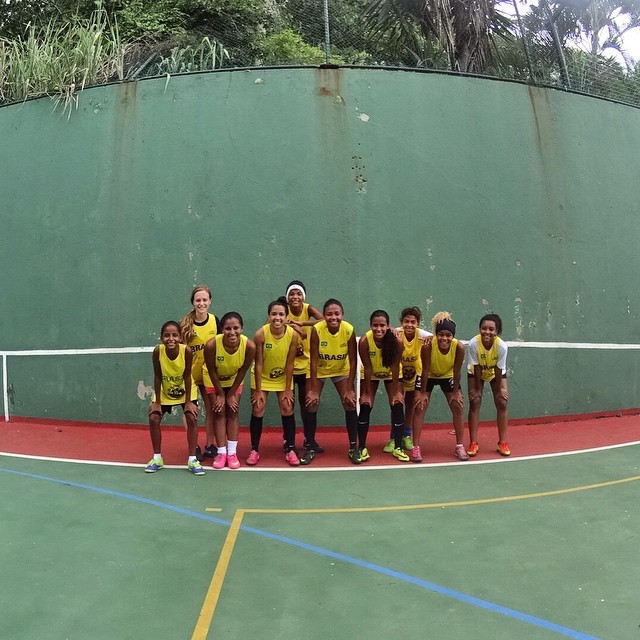Like this article? rabble is reader-supported journalism. Chip in to keep stories like these coming.
One of the coolest experiences we’ve had in Rio was going to a favela high in the hills to play soccer with some kids who live there. They’re all part of the PlayLife World program that keeps children active and off the streets by providing development in sports, English, character and life skills.
Having been told that almost all the kids in the program were Afro Brazilian, I was expecting a group of kids looking like kids you’d find in inner-city neighbourhoods in the U.S. However, the kids all looked far more Spanish than African (check out the PlayLife World Facebook page to see for yourself).
So maybe one of the reasons I haven’t “seen” very many Afro Brazilians is I’ve been looking for the wrong thing. I’ve been looking for people who look more “Afro” than “Spanish” Brazilian but I’ve learned Afro Brazilians are much more diverse.
That was the first surprise in the favela. The second was learning that rich folks like Madonna and soccer star David Beckham have houses in the favela.
The favela Madonna and Becks call home is Vidigal, which the 2013 Guardian article, “Favela Tourism in Rio de Janeiro“, declared “Rio’s most foreigner-friendly favela.” Surprisingly (for the Guardian at least), the article made only passing reference to the fact that Vidigal got really hip after it was “pacified” in 2012.
According to the 2015 NPR story, “Rio’s Favelas Feel The Peace — And The Pressure — Of Pacification,” in 2009 the police moved into some of Rio’s favelas in a pacification project aimed at reducing violence in the city’s worst neighborhoods. The government was hoping to reduce crime ahead of the Rio 2016 Olympics.
According to our African-American contact who has lived in Rio for five years, “pacifying” a favela involves having the army and police spraying the place with gun fire to kill all the gang members — and, unfortunately, anyone else who got caught in the crossfire.
One of the most powerful quotes in the NPR story supports this. Mayse Freitas lives in Complexo de Alemao, one of the favelas targetted for pacification. She joined a group of protestors one day to protest the program’s failure.
“There is no pacification here,” she said. “What we have is a war. Criminals against police, fighting over who are the more powerful the more influential. And who suffers? We do. I’m a mother and a grandmother. I don’t want my children or grandchildren to be next.”
Vidigal appears to be an exception with pacification being so successful, even Madonna and Beckham felt safe enough to move in. However, they may be safe from drug lords, but apparently not from locals angry about the effect they’re having, if one believes the Jan. 2015 Daily Mail story, “David Beckham ruined my favela! Slum dwellers attack star after Rio shanty town turns into luxury enclave.”
We have no idea if the kids we played soccer with were around when their home was pacified because we were all having way too much fun playing soccer to talk about bad stuff. Even if we had tried, most of them are only beginning to learn English which is a key part of the PlayLife World program. This is a very good thing because it could really come in handy if they end up leading the next protest.
Like this article? rabble is reader-supported journalism. Chip in to keep stories like these coming.
Image: Facebook/PlayLife World



